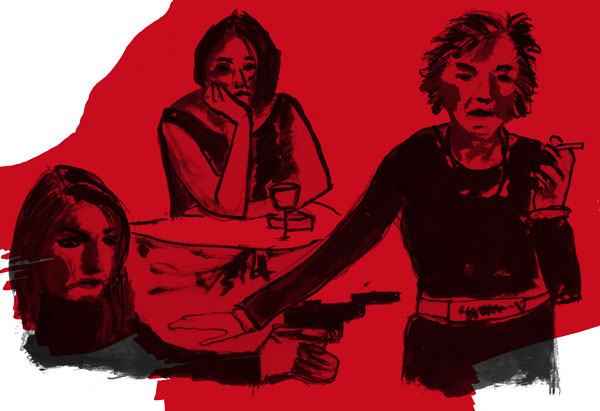The Americans, Ida and Child’s Pose: All happy families are alike, each unhappy family is unhappy in its own way.
I like good TV programs. I’ve watched several series with a lot of enthusiasm. However, if quality serial television ceased to exist, I would be more than fine. This is why I was surprised to feel that a gaping hole was left in my Thursday evenings with the conclusion of this season of The Americans.
The Americans is a thriller about family life. The undercover Soviet agent story is just a cover for a show that’s about the challenges of family and marriage. On the one hand it is preposterous enough to be classic escapist entertainment, yet on the other it explores the complex issues couples face as they try to negotiate the conflicting demands of marriage, careers, their convictions and the needs of their children. And from the kids perspective it describes the painful, mounting realization that you can’t fully know your parents and that they in turn just don’t get you.
Central to The Americans is the character Elizabeth Jennings– the next door, Salsibury Steak- preparing, American Mom who is really a ruthless Soviet agent. She clearly prioritizes the cause over her emotional life with her kids. Yet she feels conflicted about it like many modern women juggling careers that are important to them and the demands of motherhood. However her maternal attachment to her children is decidedly lukewarm, which is one of the reasons I think she is such an interesting character to see on TV. She a mom. She’s both the the villain and the hero of the show. And she’s sympathetic. Ok, just go with the leap of imagination here, but this brings to mind two other Soviet-era mothers I’ve seen recently in films.
Ida is a black and white road trip set in 1960s Poland. The unlikely companions are Ida, a novice nun and her smart, straight-talking, alcoholic aunt Wanda. With an economic restraint the film details the bottomless grief of Wanda. During the war (WWII) Wanda left her only child, a four year old boy, in the care of her sister to go underground to fight in the resistance. While she was away her son was murdered along with his aunt and uncle. They, like Wanda, were Polish Jews. Ida, Wanda’s sister’s daughter was with them too. She was a baby and spared because she didn’t “look Jewish”. She was sent to the convent. Wanda’s son met his fate because he was darker and circumcised. “I didn’t even get to know him,” she sobs to Ida. “I went off to fight, for what?” For Wanda, like Elizabeth Jennings, the cause, a the time, was greater than herself or her family. Her subsequent accomplishments for the Party – she rose up through the ranks to be a powerful judge in the post-war Stalin era was a bitter consolation. Her grief over abandoning her son and his death is unshakable. It is the source of her undoing. The film is named after the main character, who has to come to terms with the truth that she is Jewish and her parents were murdered in the war. The film is about Ida, but it its emotional core belongs to Wanda. It is a film about ways in which the past cannot be erased nor can it always be integrated into the present.
In the Romanian film Child’s Pose we watch with horror and fascination the maternal obsession of Cornelia Keneres, vividly portrayed by the great Romanian actress Luminita Gheorghiuin. In Ida the performances are delicate and understated which give space for devastating emotions. In contrast Gheorghiuin’s intense, tour-de-force performance is not above histrionics, laying bare a brunt emotionalism. This film is set in post-communist Romania. The main character Cornelia would have spent much of her life in Communist Romania and under the perverse dictatorship of Nicolea Ceacescu. There is no greater political or social cause for Cornielia. She lives for her hapless son. And she won’t hesitate to engage in bribery and manipulation to get him off the hook for killing a boy in a traffic accident. Corneila explains what drives her: “Parents find their fulfillment in their children. Everything they failed to accomplish, they achieve through their children.” It’s a charismatic portrait of maternal narcissism that’s so intense you get the feeling it was developed as a perverse kind of survival skill.
